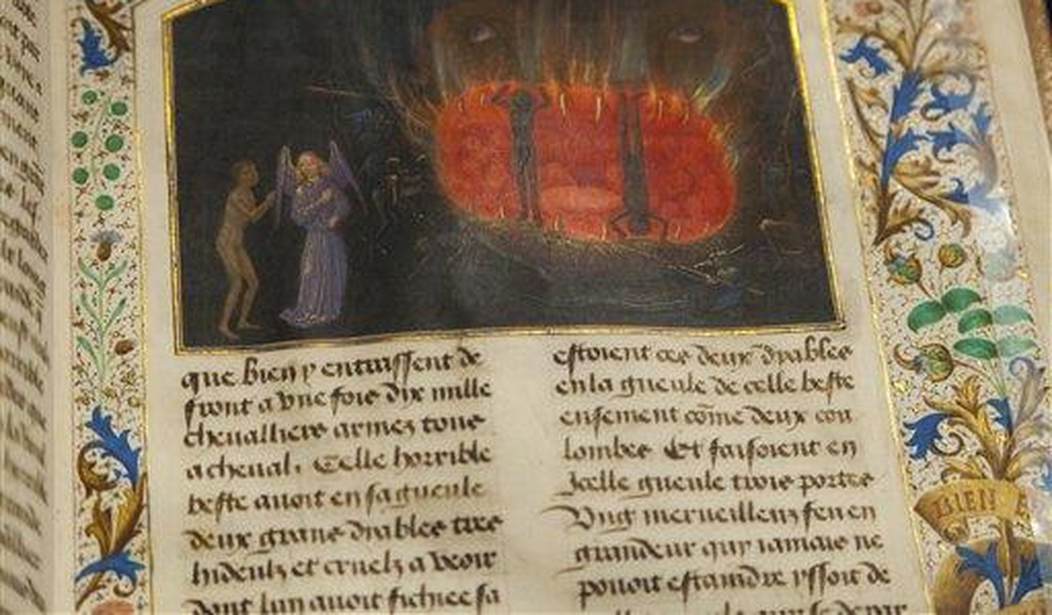There’s a lot to lament about modern society, but I’d argue that few of us would want to get rid of absolutely everything that technology and culture have afforded us today. Then there’s Matt Yglesias.
Yglesias, the veteran of Slate and Vox who now writes at his personal blog called Slow Boring, tweeted this gem on Sunday:
Medieval peasants had no student loan debt, no medical bankruptcies, and never had to worry about high gas prices. What went wrong? Capitalism.
— Matthew Yglesias (@mattyglesias) April 17, 2022
Read that twice to let it sink in, and once you’ve stopped laughing, let’s consider the shortsighted silliness of this tweet.
On the surface, Yglesias makes an understandable statement. Sure, the peasants of the Middle Ages didn’t have to worry about having to pay back those loans they took out when they went for their gender studies degrees (with a minor in queer theory, naturally). They didn’t have to fill up their donkeys with premium gasoline to plow the fields, nor did they find themselves crushed with debt from their last trip to the hospital barber.
Medieval life was so carefree, as a friend of mine pointed out in his reply to Yglesias.
— David Thornton (PilotPundit) 🌻🇺🇦 (@captainkudzu) April 17, 2022
Yeah. Good times.
Any time I think about how we should go back to those amazingly simple times — which is never — I consider the threats that medieval peasants faced that we don’t have to worry about these days.
First, there’s the bubonic plague. Dr. Katharine Olson describes it in the most appealing terms: “The deadly bubonic plague caused oozing swellings (buboes) all over the body. With the septicaemic plague, victims suffered from skin that was darkly discoloured (turning black) as a result of toxins in the bloodstream (one reason why the plague has subsequently been called the ‘Black Death’).”
But hey, at least they didn’t have to pay too much for gas.
There’s also famine, death in childbirth, and the fact that about 30% of children didn’t live past the age of seven. The weather could kill medieval peasants — and I’m not talking about “climate change” here, but the actual day-to-day weather patterns. Travel was dangerous for medieval peasants as well.
Don’t forget about how much trouble you could be in if you harbored beliefs that diverted from the orthodoxy of those in power — come to think of it, that’s something that only those of us on the right have to worry about these days.
Life expectancy for medieval peasants wasn’t all that great.
“Peasants in the English manor of Halesowen might hope to reach the age of 50, but by contrast poor tenants in [the] same manor could hope to live only about 40 years,” writes Olson. “Those of even lower status (cottagers) could live a mere 30 years.”
As of this writing, Yglesias is 40 years old, which means he’s way past his prime in medieval peasant years.
Recommended: Stacey Abrams Has Taken Her Personal Grievances All the Way to the Bank
In other words, medieval peasants had a lot more to worry about than the first-world problems that Yglesias lays at the feet of capitalism. The other factor that he misses is that medieval-style feudalism has reared its ugly head in a different way today.
Joel Kotkin, author of The Coming of Neo-Feudalism: A Warning to the Global Middle Class, posits that “we are inexorably returning towards a more feudal era marked by greater concentration of wealth and property, reduced upward mobility, demographic stagnation, and increased dogmatism.”
The new class structure resembles that of Medieval times. At the apex of the new order are two classes―a reborn clerical elite, the clerisy, which dominates the upper part of the professional ranks, universities, media and culture, and a new aristocracy led by tech oligarchs with unprecedented wealth and growing control of information. These two classes correspond to the old French First and Second Estates.
Below these two classes lies what was once called the Third Estate. This includes the yeomanry, which is made up largely of small businesspeople, minor property owners, skilled workers and private-sector oriented professionals. Ascendant for much of modern history, this class is in decline while those below them, the new Serfs, grow in numbers―a vast, expanding property-less population.
I don’t presume to know how Matt Yglesias lives, but I’d assume that he fits into the “clerisy” that Kotkin describes. So it’s easy for him to talk about how great life was for medieval peasants when he’s so far removed from any sort of hardscrabble existence.
Do I really believe that Yglesias wants us to return to the Middle Ages? Of course not, but for him to lay those specific problems at the feet of capitalism is idiotic, especially when students struggle with too-easy-to-acquire student loan options often from the federal government, a crushing medical bureaucracy that kills competition and innovation, and the energy policies of the decidedly anti-capitalist Biden administration, which he doubtless supports.
Come back at me when you’ve examined those causes of the problems you decry, Matt, instead of relying on a cutesy, far-too-simplistic tweet that throws capitalism under the cart.










Join the conversation as a VIP Member